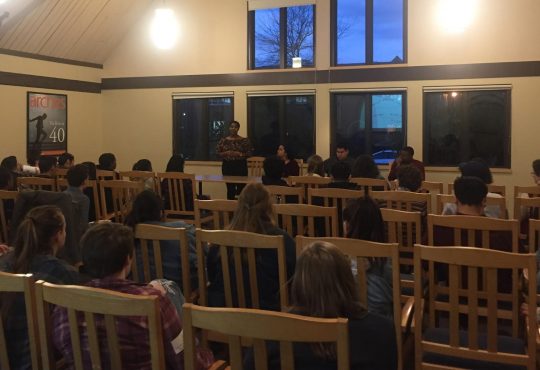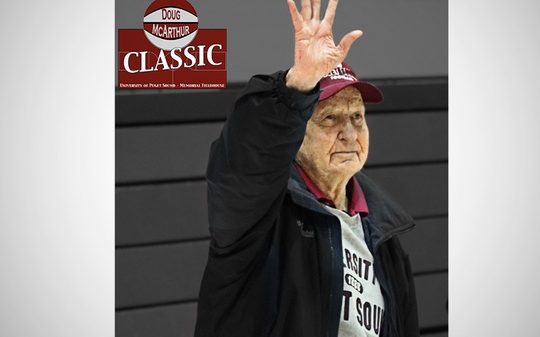At Puget Sound, anyone can join the University’s Debate Team. But to junior debaters Austin Brittenham and CJ Queirolo, it is clear that privilege still frequently dictates who can or cannot be successful in competitions. So when they debate, they push the boundaries of the status quo.
On Feb. 21 and 22, the University hosted District Qualifiers for the National Debate Tournament in Wyatt Hall. Schools from throughout the Pacific Northwest attended to compete; Brittenham and Queirolo represented Puget Sound.
The issue at hand was whether or not the United States should legalize all or nearly all of one or more of the following: marijuana, online gambling, physician-assisted suicide, prostitution and the sale of human organs.
There were six rounds total over the course of two days, and each round lasted from 90 minutes to two hours.
Before each round and between speeches, Brittenham and Queirolo were completely at ease. But when the time came time to perform their arguments, it was another story entirely.
Each stood and took a few moments to find the right footing, sometimes swaying back and forth as though preparing to break into a sprint. Then the timer would start and they would spring into action, racing against the clock to deliver their arguments before running out of time.
At times they spoke so quickly that their words blended together in a near hum. This technique of speed reading, called “spreading” within the debate community, has been utilized since the 1980s. The objective is to include as many arguments as possible in the time allotted.
However, Brittenham and Queirolo have formed their method of debating in a way that incorporates a style called New Debate or the Performative Term. This approach to speech delivery began about 10 years ago in an attempt to push back against the inaccessibility of speed reading, which affected the demographic of who could successfully participate in debate.
“Speed reading is something that is only accessible to mostly particular kinds of bodies: white, formal-English-speaking, upper-middle class, temporarily able-bodied. And so there was this push back, which was like, yes speed reading is cool, but it’s really inaccessible to a lot of different kinds of people for different reasons,” Brittenham said.
Queirolo and Brittenham integrate New Debate into their speech delivery in various ways. They incorporate different speeds of speaking, poetry and even dance.
“There is no reason to privilege speaking as fast as you can over someone doing freestyle. They’re both persuasive modes of communication, they’re just different effects. But one is privileged within academic space like debate. So the whole movement is trying to have those arguments evaluated as just as if not more legitimate than arguments made at incredible fast speeds,” Queirolo said.
Another aspect of New Debate that attempts to examine the accessibility and privilege within Debate involves the technique’s highlighting of personal identity and lived experiences.
“We talk about our experience in debate being queer people and having straight judges and straight coaches who don’t really understand the specifics of where we’re coming from,” Queirolo said. “There are more and more teams that talk about their social locations, their positionalities, their subjectivities. Basically talking about their identity in relation to the topic or its non-relation to the topic.”
“It’s really questioning who the topic is made for and what the benefits of debate are supposed to be,” Brittenham said.
During the tournament, Queirolo and Brittenham further pursued this approach by highlighting how the arguments made by opponents specifically failed to consider the needs of or the effects upon trans and queer individuals.
“That’s what we do. We talk about things that are excluded by the topic,” Queirolo said.
By the end of the tournament, Brittenham and Queirolo had won every one of their six rounds and were voted the top two speakers.
They will compete in the National Debate Tournament at the University of Iowa, April 2-6.






